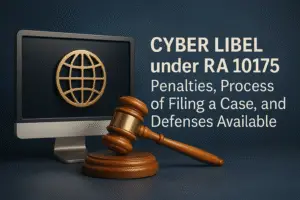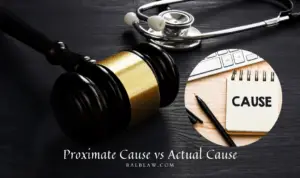In the Philippines, crimes are penalized in accordance with the provisions of the Revised Penal Code. However, the same Code also contains a provision explicitly stating that offenses which are or in the future may be punishable under special laws are not within the ambit of the provisions of the Revised Penal Code, though shall be supplementary to such special laws.
This prompted us to wonder how could these laws be appropriately administered, or should one be taken down as it disturbs what has already been set in law? Nonetheless, the application that would render impartial justice is what should be applied.
When is the Revised Penal Code suppletory to special laws?
Article 10. Offenses not subject to the provisions of this Code. –– Offenses which are or in the future may be punishable under special laws are not subject to the provisions of this Code. This Code shall be supplementary to such laws, unless the latter should specially provide the contrary.1
Article 10 Explained
Article 10 of the Revised Penal Code is composed of two clauses which seems to be conflicting, that:
- offenses punishable under special laws are not subject to the provisions of the Code; and
- the Code be supplementary to such laws.
Justice Reyes (2022) reconciled the clauses by explaining that the first clause only means that special laws are controlling to the offenses specifically punished therein. Meanwhile, the crux of Art. 10 lies in the second clause which explains that the Revised Penal Code shall be supplementary to special laws, unless, otherwise the special law provides the contrary.
Thus, as a general rule, the provisions of the Revised Penal Code are not applicable in special laws. And as an exception, in order to prevent injustice as when the special law is silent on a specific matter which if it would not be applied shall prejudice the right of another, the provisions of the Revised Penal Code may supplement what is lacking in the special law.2
Understanding Article 10 by its words and phrases
“Special Laws“
In addition to the crimes punishable by the Revised Penal, a number of other criminal laws have been passed. These laws are known as “Special Penal Laws” and form part of Philippine Criminal Laws. But how do Special Penal Laws differ from the provisions in the Revised Penal Code?
The two were most commonly distinguished by the term used when referring to them. Acts punishable under the Revised Penal Code are referred to as “crimes.” On the other hand, acts punished by Special Laws are referred to as “offenses.”
Furthermore, most of crimes under the Revised Penal Code, if not all, are categorized as mala in se, which contemplates that such acts are inherently evil or bad. On the contrary, acts punished in Special Penal Laws are often categorized as malum prohibitum or acts that are wrong because they are prohibited or against the law.
However, it is not accurate to say that all the felonies under the Revised Penal Code are mala in se, and, under the Special Laws, they are mala prohibita. It does not follow.
Generally, no criminal intent is required to hold someone accountable for offenses punishable by Special Penal Laws. Any conduct carried out is penalized, and good faith as a defense will not lie too.
At the risk of being repetitive, it must be clarified, however, that not all violations under the Revised Penal Code are mala in se and not all violations of Special Laws are malum prohibitum. In the case of Dungo vs. People of the Philippines,3 the Supreme Court clarified that:
Criminal law has long divided crimes into acts wrong in themselves called acts mala in se; and acts which would not be wrong but for the fact that positive law forbids them, called acts mala prohibita. This distinction is important with reference to the intent with which a wrongful act is done.4
The rule on the subject is that in acts mala in se, the intent governs; but in acts mala prohibita, the only inquiry is, has the law been violated?5
When an act is illegal, the intent of the offender is immaterial. When the doing of an act is prohibited by law, it is considered injurious to public welfare, and the doing of the prohibited act is the crime itself.6
A common misconception is that all mala in se crimes are found in the Revised Penal Code (RPC), while all mala prohibita crimes are provided by special penal laws. In reality, however, there may be mala in se crimes under special laws, such as plunder under R.A. No. 7080, as amended. Similarly, there may be mala prohibita crimes defined in the RPC, such as technical malversation.7
The better approach to distinguish between mala in se and mala prohibita crimes is the determination of the inherent immorality or vileness of the penalized act. If the punishable act or omission is immoral in itself, then it is a crime mala in se,- on the contrary, if it is not immoral in itself, but there is a statute prohibiting its commission b)”. reasons of public policy, then it is mala prohibita.8
“Supplementary”
The word “supplementary” pertains to supply what is lacking by completing or making an addition to.9
The Revised Penal Code acts to supplement what is lacking with special laws to complete its operation. However, it is only possible when the latter is silent on a particular and such incompleteness would prejudice the right of another. Hence sometimes, some provisions of Revised Penal Code are just perfectly applicable to special laws, as the times, when the Supreme Court suitably extends the provisions of Revised Penal Code to special penal laws.
When the special laws are amendatory of Revised Penal Code, such is also subject to latter’s provision. In People vs. Macatanda,10 it is elucidated that P.D. 533 shall be deemed as an amendment of the Revised Penal Code, with respect to the offense of theft of large cattle (Art. 310), or otherwise to be subject to applicable provisions thereof such as Article 104 of the Revised Penal Code on civil liability of the offender, a provision which is not found in the decree, but which could not have been intended to be discarded or eliminated by the decree.11
Article 64 of the same Code should, likewise, be applicable, under which the presence of two mitigating circumstances, as found by the trial court, that of plea of guilty and extreme poverty, without any aggravating circumstances to offset them, entitles appellant to a lowering by one degree of the penalty for the offense, which under P.D. No. 533 is prision mayor, maximum, to reclusion temporary medium.12
“Unless the latter should specially provide the contrary”
Departing from the general law that the RPC may supplement what is lacking in the Special Law to prevent miscarriage of justice, the same is not applicable when the Special Law itself provides the contrary.
In the case of People vs. Po Giok To,13 the argument advanced by defendant-appellee, is that being a special law with respect to residence certificates expressly punishing their falsification under the Commonwealth Act No. 465, the latter is what should be applied, and not the provisions of the Revised Penal Code. The Supreme Court held that:
The fact that Commonwealth Act No. 465 punishes the falsification of residence certificates in the cases mentioned therein does not prevent the application of the general provisions of the Revised Penal Code on other acts of falsification not covered by the special law, since under Art. 10 of the Revised Penal Code, it has supplementary application to all special laws, unless the latter should specially provide the contrary, and Commonwealth Act No. 465 makes no provision that it exclusively applies to all falsifications of residence certificates.14
Then, again, section 12 of Commonwealth Act. No. 465 penalizes all other violations of the residence certificate law not covered by the preceding sections thereof. Which law is applicable should be determined when the case is decided on its merits. At the present stage of the proceedings, however, it can be stated that whether the crime charged be punishable under the Revised Penal Code, or sec. 12 Comm. Act No. 465, the information was sufficient, and its dismissal for insufficiency by the Court below was improper and erroneous.15
In Romualdez vs. Hon. Marcelo,16 both respondents aver that, applying Article 91 of the Revised Penal Code suppletorily, the absence of the petitioner from the Philippines from 1986 until April 27, 2000 prevented the prescriptive period for the alleged offenses from running. It was held that the Revised Penal Code shall apply to special laws only suppletorily and only when the latter does not provide the contrary. The Supreme Court ruled that:
Section 2 of Act. No. 3326 is conspicuously silent as to whether the absence of the offender from the Philippines bars the running of the prescriptive period. The silence of the law can only be interpreted to mean that Section 2 of Act No. 3326 did not intend such an interruption of the prescription unlike the explicit mandate of Article 91.17
It must be pointed out that the suppletory application of the Revised Penal Code to special laws, by virtue of Article 10 thereof, finds relevance only when the provisions of the special law are silent on a particular matter.18
The Revised Penal Code explicitly states that the absence of the accused from the Philippines shall be a ground for the tolling of the prescriptive period while Act No. 3326 does not.19
In such a situation, Act No. 3326 must prevail over Article 91 because it specifically and directly applies to special laws while the Revised Penal Code shall apply to special laws only suppletorily and only when the latter do not provide the contrary.20
Indeed, elementary rules of statutory construction dictate that special legal provisions must prevail over general ones.21
Application of Article 10 | Parameters
The Revised Penal Code is not suppletory when penalties under special law are different from those under the former.
In People vs. Simon,22 the Court emphasized that where the penalties under the special law are different from and are without reference or relation to those under the Revised Penal Code, there can be no suppletory effect of the rules for the application of penalties under said Code or by other relevant statutory provisions based on or applicable only to said rules for felonies under the Code. In this type of special law, the legislative intendment is clear.23
Moreover, offenses under special laws are not subject to the provisions of the Revised Penal Code relating to attempted and frustrated crimes. The special law has to fix a penalty for the attempt and the frustration of the crime defined by it, in order that the crime may be punished in case of failure of the complete consummation of the crime.
Art. 10 is likewise not applicable to punish an accomplice under special law which does not punish a mere accomplice. Unless stated otherwise, no penalty for an accomplice in the commission of an offense.
If the Special Law violated does not provide a penalty for an accomplice, the provision under the Revised Penal Code with respect to the imposable penalty for accomplices, is inapplicable and non-imposable to the supposed “accomplice.”
Mitigating or aggravating is not applied to offenses under special laws. The Court, in the above-mentioned jurisprudence, ruled that in imposing the penalty for offenses under special laws, the rules on mitigating or aggravating circumstances under the Revised Penal Code cannot and should not be applied.24
The reason, therefore, was because the special laws involved provided their own specific penalties for the offenses punished thereunder, and which penalties were not taken from or with reference to those in the Revised Penal Code.25
Since the penalties then provided by the special laws concerned did not provide for the minimum, medium or maximum periods, it would consequently be impossible to consider the aforestated modifying circumstances whose main function is to determine the period of the penalty in accordance with the rules in Article 64 of the Code.26
This is also the rationale for the holding in previous cases that the provisions of the Code on the graduation of penalties by degrees could not be given supplementary application to special laws, since the penalties in the latter were not components of or contemplated in the scale of penalties provided by Article 71 of the former.27
The suppletory effect of the Revised Penal Code to special laws, as provided in Article 10 of the former, cannot be invoked where there is a legal or physical impossibility of, or a prohibition in the special law against, such supplementary application.28
Suppletory Application of the Revised Penal Code to Special Laws
By the virtue of Art. 10, RPC is being applied suppletorily to special laws. The following are summary of cases where the Court extended the provisions of RPC to special laws.
Exempting Circumstance of Minority of RPC in “Comprehensive Dangerous Drugs Act of 2002, as amended”
RA 9165 specifically provides in its provision for the limited applicability of Revised Penal Code in itself, that “notwithstanding any law, rule or regulation to the contrary, the provisions of the Revised Penal Code (Act No. 3815), as amended, shall not apply to the provisions of this Act, except in the case of minor offenders. Where the offender is a minor, the penalty for acts punishable by life imprisonment to death provided herein shall be reclusion perpetua to death.”29
When the child in conflict with the law is charged with violation of R.A. 9165, Art. 12(3) of RPC is applicable to RA 9165. Thus, the minor over nine years of age and under fifteen shall be exempted from criminal liability. The law applies even if such minor is charged with a crime defined and penalized by a special penal law.30
Subsidiary Penalty to “Revised Motor Vehicle Law” and “B.P. 22”
In People vs. Moreno,31 the Supreme Court applied Art. 39 of the Revised Penal Code on subsidiary penalty for violation of Act. 3992 or the “Revised Motor Vehicle Law” because the latter is silent that the defendant can be sentenced with subsidiary penalty.
That, although the Revised Motor Vehicle Law, Act No. 3992, is a special law, the provisions of article 100 and article 39 of the Revised Penal Code are applicable to a person found guilty of a violation of the Revised Motor Vehicle Law, because of the provision of article 10 of the Revised Penal Code that the Code shall be supplementary to special laws under which offenses are punishable, unless the latter shall specially provide the contrary, and there is nothing to the contrary in the Revised Motor Vehicle.32
Additionally, the Supreme Court applied the same provision, a subsidiary penalty, to B.P. 22 in cases of insolvency to pay fine.33 Thus, the Court has, on several occasions, imposed subsidiary imprisonment in case of insolvency to pay the fine for violation of special laws, notwithstanding the absence of such provision in said laws.34
Principal, Accomplice, Accessory to “Migrant Workers and Overseas Filipinos Act of 1995”
In People vs. Chowdury,35 the Revised Penal Code supplements RA 8042 by defining who are the principals, accomplices and accessories in the crime of illegal recruitment because those are not defined therein although the special law referred to the same in enumerating the persons liable for the crime.
Applicability of the Revised Penal Code to “Anti-Fencing Law”
In Estrella vs. People,36 the Court reiterated that while the offense of Fencing is defined and penalized by a special penal law, the penalty provided therein is taken from the nomenclature in the Revised Penal Code. Under such circumstance, the legal effects under the system of penalties native to the Code would also necessarily apply to the special law.37
Meanwhile, Sec. 1 of Act No. 4103, otherwise known as the Indeterminate Sentence Law (ISL), provides that if the offense is ostensibly punished under a special law, the minimum and maximum prison term of the indeterminate sentence shall not be beyond what the special law prescribed.38
Be that as it may, the Court had clarified in the landmark ruling of People vs. Simon that the situation is different where although the offense is defined in a special law, the penalty therefor is taken from the technical nomenclature in the RPC. Under such circumstance, the legal effects under the system of penalties native to the Code would also necessarily apply to the special law.39
Evidently, if the special penal law adopts the nomenclature of the penalties under the Revised Penal Code, the ascertainment of the indeterminate sentence will be based on the rules defined under the latter law.
Conclusion
By the virtue of Art. 10, the Revised Penal Code has been given a suppletory application to special laws. As general rule, the provisions of Revised Penal Code are not applicable in special laws. However, an exception to this is when the special law is silent on a specific matter. As such, the Revised Penal Code may be applied to prevent injustice and prejudice to the right of another.
An amendatory law also adopts the nomenclature of Revised Penal Code. On the contrary, the latter is not suppletory when penalties under special law are different from those under the Revised Penal Code.
Offenses under special laws are also not subject to the provisions of the Revised Penal Code relating to attempted and frustrated crimes. Sometimes, mitigating, aggravating, nor exempting is applied to offenses under special laws, unless it is specifically provided i.e. application of minority to R.A. 9165.
The reason, therefore, is that the special laws involved provided their own specific penalties for the offenses punished thereunder, and which penalties were not taken from or with reference to those in the Revised Penal Code.
Indeed, the Revised Penal Code is elemental in the Philippine justice system— as to supply and complete what is lacking among special laws.
- Article 10 of the Revised Penal Code[↩]
- Judge Alejandria, Basic Criminal Law, 2022[↩]
- G.R. No. 209464, July 1, 2015[↩]
- Ibid.[↩]
- Ibid.[↩]
- Ibid.[↩]
- Ibid.[↩]
- Ibid.[↩]
- Cornell Law, Dictionary[↩]
- G.R. No. L-51368, November 6, 1981[↩]
- Ibid.[↩]
- Ibid.[↩]
- G.R. No. L-7236, April 30, 1955[↩]
- Ibid.[↩]
- Ibid.[↩]
- G.R. Nos. 165510-33, July 28, 2006[↩]
- Ibid.[↩]
- Ibid.[↩]
- Ibid.[↩]
- Ibid.[↩]
- Ibid.[↩]
- G.R. No. 93028, July 29, 1994[↩]
- Ibid.[↩]
- Ibid.[↩]
- Ibid.[↩]
- Ibid.[↩]
- Ibid.[↩]
- Ibid.[↩]
- Section 98 of RA 9165[↩]
- People vs. Moreno, G.R. No. L-41036-B, October 10, 1934[↩]
- Ibid.[↩]
- Ibid.[↩]
- People vs. Alapan, G.R. No. 199527, January 10, 2018[↩]
- People vs. Abedes, G.R. No. 73399, February 21, 1997[↩]
- G.R. No. 129577-80, February 15, 2000[↩]
- G.R. No. 212942, June 17, 2020[↩]
- Ibid.[↩]
- Sec. 1 of Act No. 4103[↩]
- Supra.[↩]




